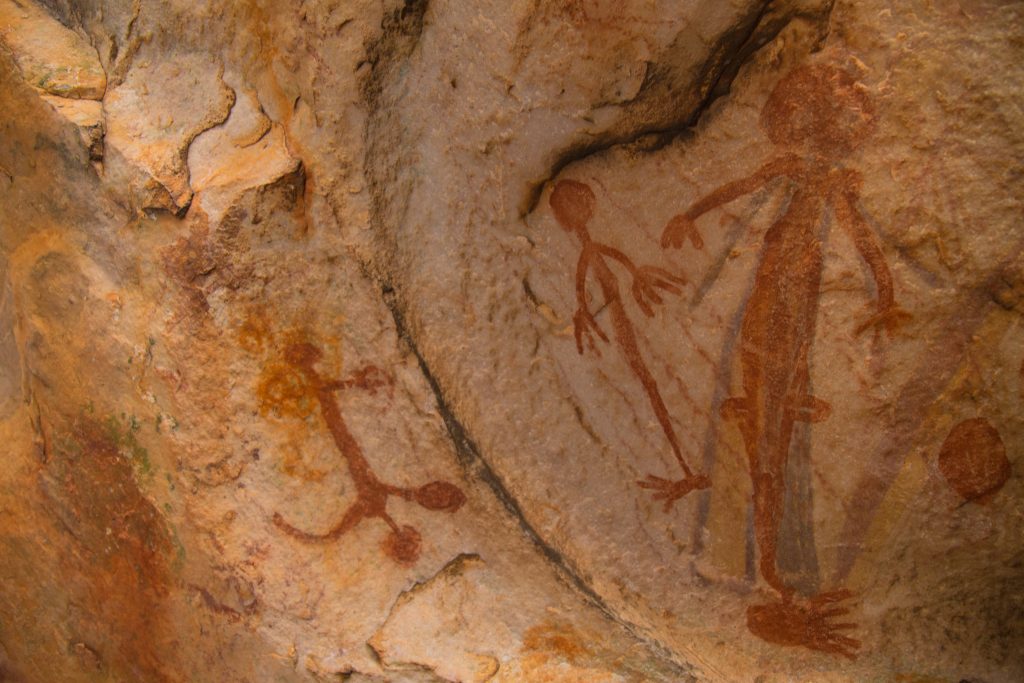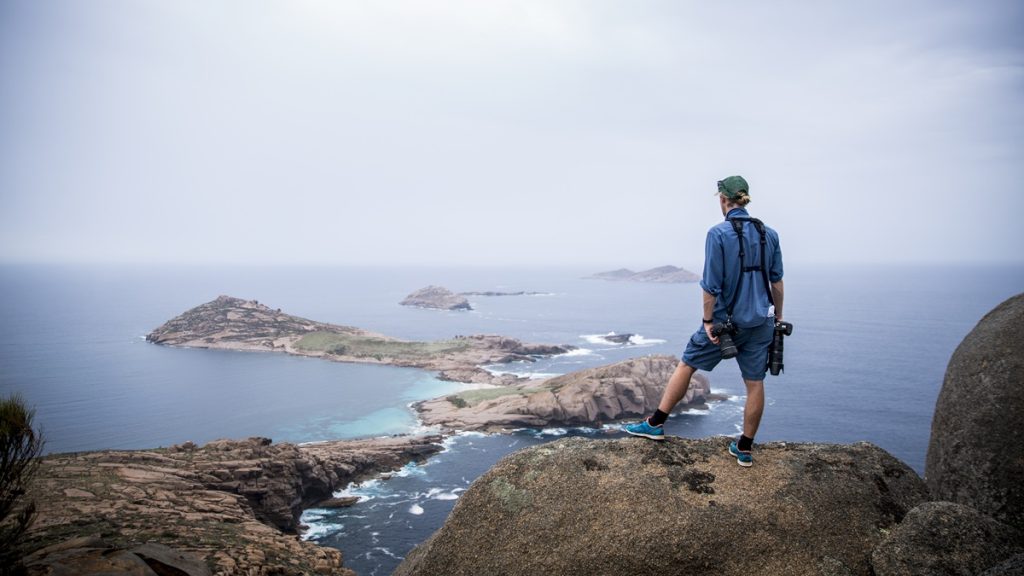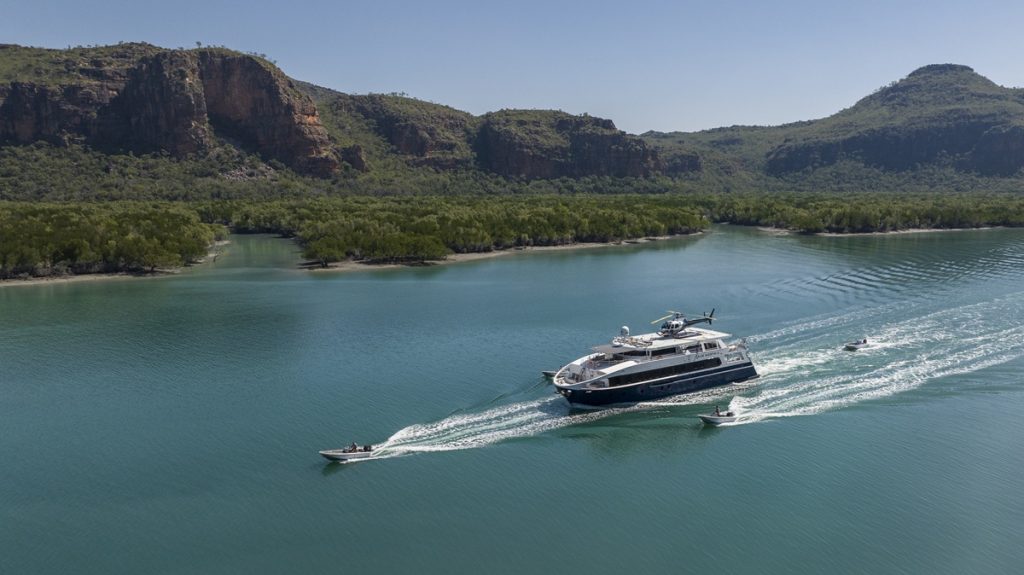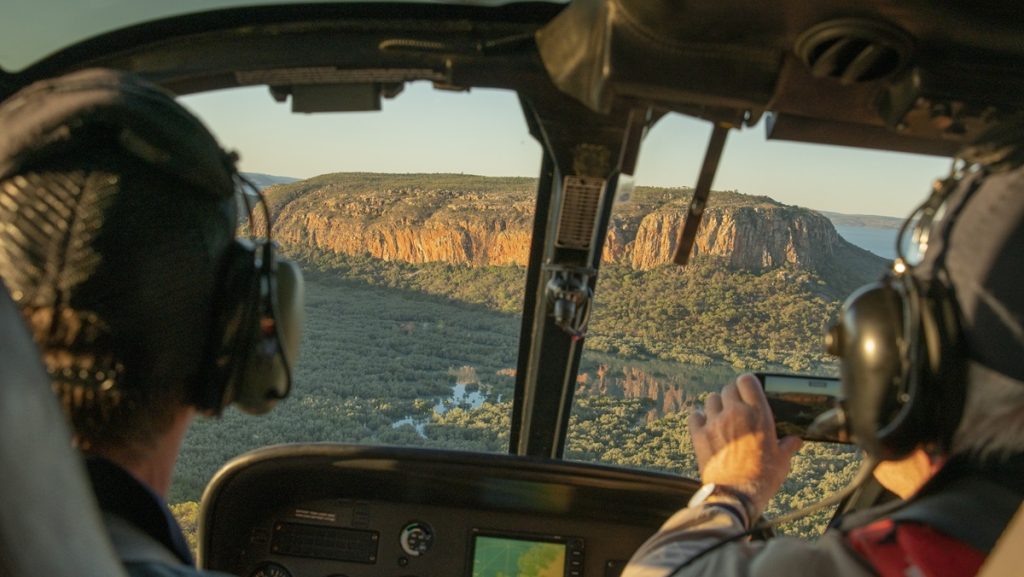The Hunter River is the kind of place that makes you stop and take it all in. Sheer cliffs tower over the water, waterfalls crash down from above, and thick mangroves hide more crocodiles than anywhere else in the Kimberley. It feels untouched, like time never quite reached this part of the world.
There are no roads, no towns, and no easy way in. The river winds inland from Prince Frederick Harbour, carving through ancient rock and dense bushland. Birds call from the trees, crocs drift past the boat, and every turn pulls you deeper into the wild.
You can only get here by boat or air, which is why most people never do. But if you’re lucky enough to see it, you won’t forget it.
Where is Hunter River?
The Hunter River is located in the remote Kimberley region of Western Australia. Its headwaters originate below Donkins Hill, and the river flows southwest for approximately 16 kilometres before emptying into Prince Frederick Harbour, which then leads into York Sound and the Indian Ocean.
How to get to Hunter River
By air
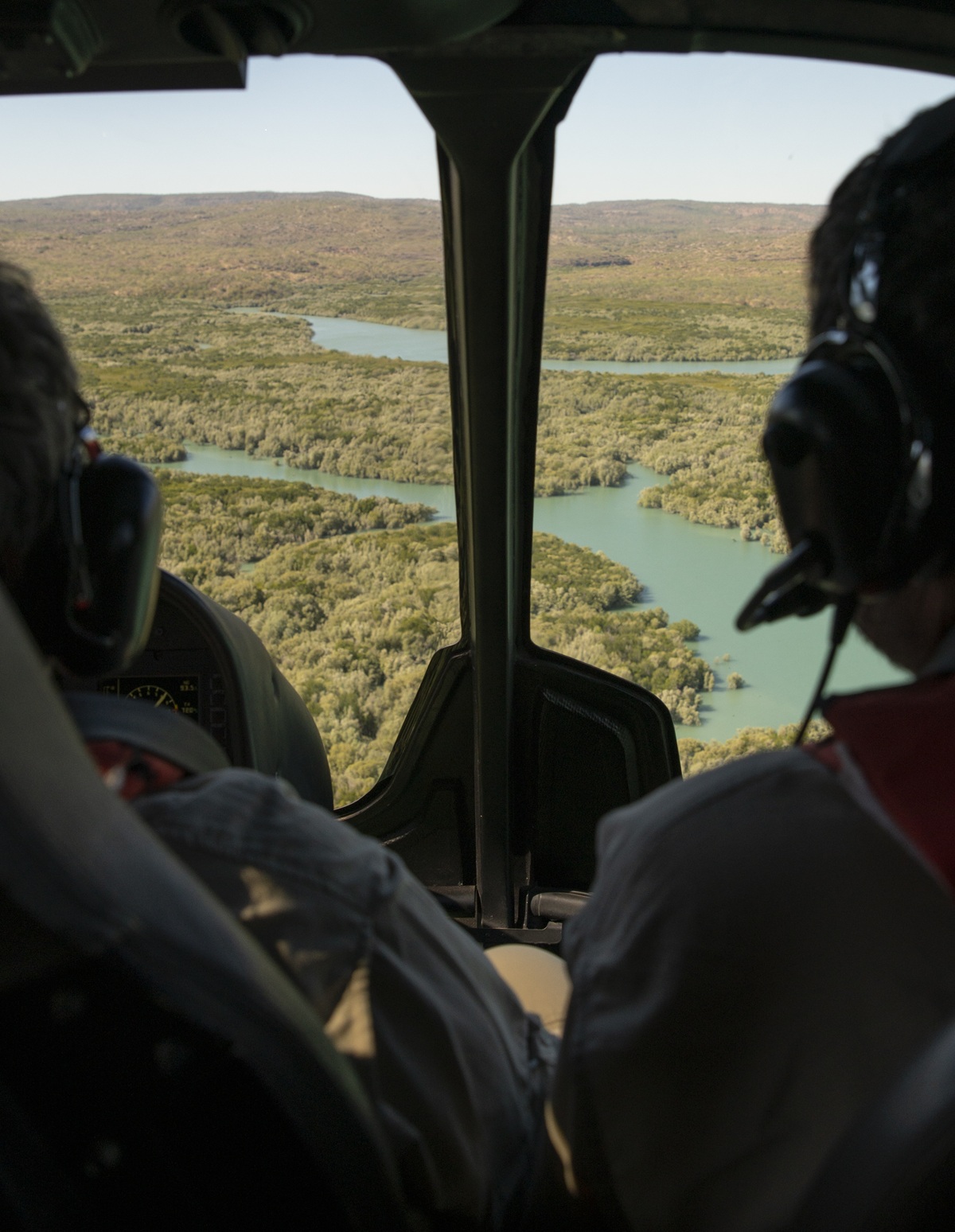
You can take a scenic flight or helicopter over the Hunter River, with departures from Broome, Kununurra, or Mitchell Plateau. From above, the scale of the landscape is unbelievable. Red cliffs stretch for kilometres, waterfalls cut through ancient rock, and winding tributaries disappear into thick mangroves. It’s the kind of view that makes you realise just how far off the beaten track you really are.
Learn more about our onboard helicopter experience.
By water
The only way to get up close to the Hunter River is by boat, and a luxury Kimberley cruise is the best way to do it.
Cliffs rise straight out of the water, mangroves creep along the edges, and crocs are never far away. It’s quiet out here, apart from the splash of a fish, the call of a bird, or the sound of your cocktail glass settling on the table.
Further up the river, waterfalls drop from the escarpments, cutting through the rock. The air is thick with the scent of salt and bushland, and the whole place feels untouched, like it hasn’t changed in thousands of years. With expert guides leading the way, you get to experience the river up close, in a way few people ever do.
Learn more about being on board True North and True North II.
Best time to visit the Hunter River
Winter (June – August)
This is arguably the best season due to it being the dry season. During this time, you’ll get clear skies, warm but comfortable days, and almost no humidity.
Autumn (March – May)
Autumn is the transition between the wet and dry seasons. Waterfalls are at their strongest, with rivers still full from the wet season rains. The landscape is lush and green, and while the humidity starts to drop, the weather can still be warm. It’s a great time to visit before the peak-season crowds arrive.
Spring (September – November)
Spring brings rising temperatures as the Kimberley moves toward the wet season. The waterfalls slow, but the fishing is at its best, with barramundi feeding heavily.
Summer (December – February)
Summer is the wet season, bringing high humidity, intense heat, and regular storms. Rivers flood, waterfalls return in full force, and the landscape turns a deep green. It’s an incredible sight, but cyclones and heavy rains make travel difficult. Most cruises don’t operate during this time.
Top things to see & do in the Hunter River
Hunter Falls & Donkin Falls
These two waterfalls drop straight from towering cliffs into the river below. They’re at their best after the wet season, when the water flows strong and the cliffs are lush with greenery. You can take them in from the boat or from above in a helicopter—either way, the scale and beauty of these falls will leave you in awe.
Jackson Falls
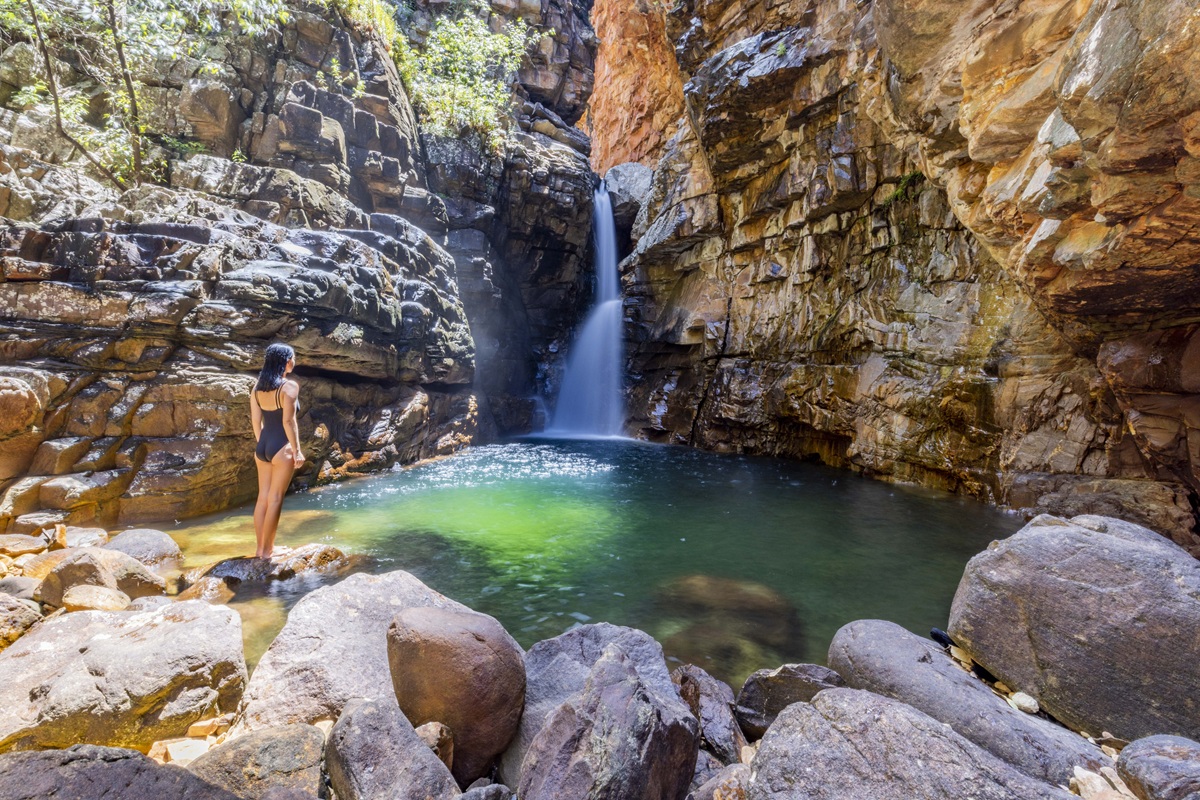
A more hidden gem, Jackson Falls is tucked away upstream and can be reached with a short guided walk. At the top, you’ll find a crystal-clear rock pool—one of the few safe places to take a dip in crocodile country. It’s the perfect spot to cool off and take in the views of the surrounding bushland.
Saltwater Crocodiles & Birdlife
The Hunter River has one of the highest numbers of saltwater crocodiles in the Kimberley. You’ll see them on the banks, gliding through the water, or barely visible beneath the surface. The river is also packed with birdlife, so you’re in for a treat!
Naturaliste Island
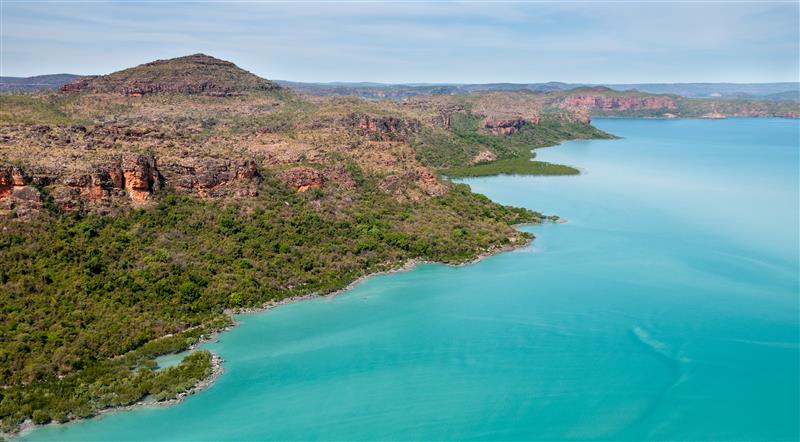
Sitting at the mouth of the river, Naturaliste Island is a rugged and remote outcrop that adds to the wild beauty of the area. It’s often used as a landing spot for helicopter excursions, offering incredible panoramic views over the river and surrounding coastline.
Fishing

The Hunter River is a top spot for barramundi, mangrove jack, and fingermark bream. The fishing here is remote and untouched, with plenty of action in the creeks and deeper waters. For more on why the Kimberley is a dream fishing destination, check out our full blog on Fishing in the Kimberley.
Tips for exploring the Hunter River
Be Crocwise
When you’re on True North, you won’t have to worry about crocodiles—our crew is always on the lookout, and safety is a priority. But if you’re exploring on your own, stay out of the water and keep a safe distance from the banks.
Pack for the Kimberley climate
It’s hot, even in winter. Bring lightweight clothing, sun protection, and a hat. A good pair of sturdy shoes is essential for any onshore exploring.
Have the right gear
If you’re travelling independently, a Personal Locator Beacon (PLB) is a must. The Hunter River is remote, and if something goes wrong, help is a long way away.
Book in advance
The Kimberley’s peak season fills up fast, and cruises to the Hunter River are limited. Book early to secure your spot.
Cruise through one of the Kimberley’s best-kept secrets
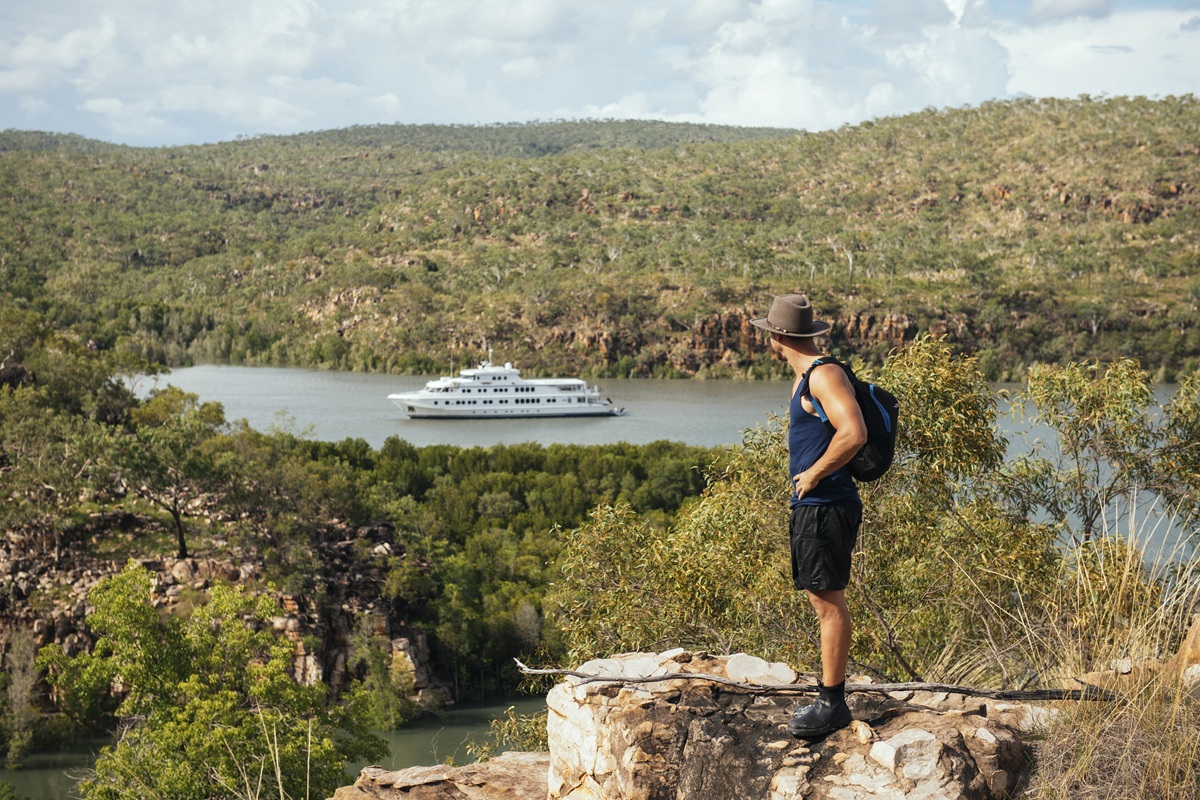
Some places just stick with you, and the Hunter River is one of them. It’s got everything you could imagine. Towering cliffs, waterfalls that seem to appear out of nowhere, and more crocs than you’d believe. It’s raw, it’s remote, and the only way to see it properly is on a Kimberley cruise. Nothing beats kicking back on the deck, taking it all in, and knowing you’re somewhere that most people will never get to.
Check out our upcoming departure dates—this is one adventure you don’t want to miss.


